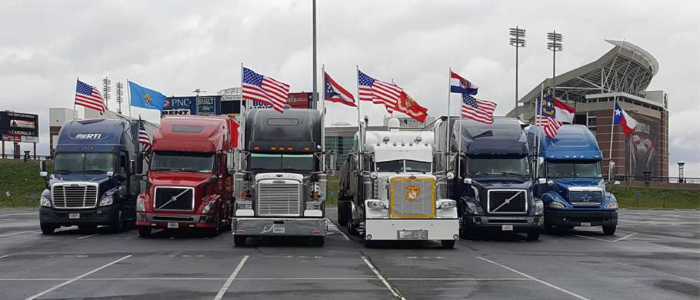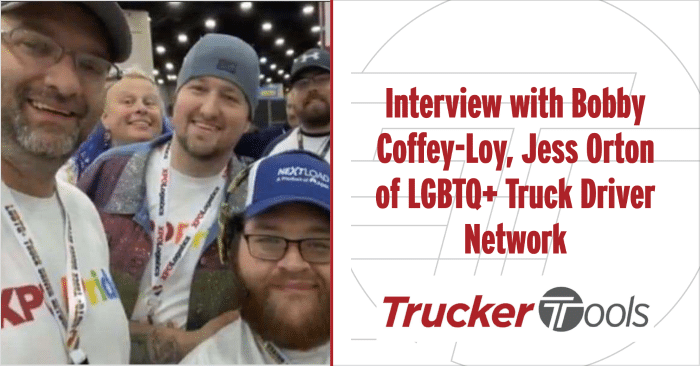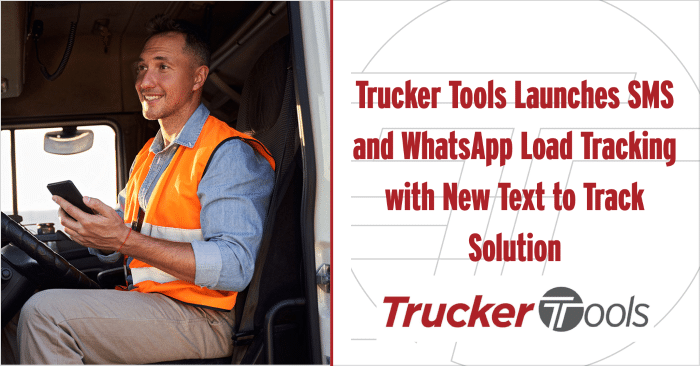One thing we hear from truckers again and again is that trucking is the family business or that a family member inspired them to get into trucking. Trucker Tools recently spoke with Tiffini Springer and Ed Prince, two of the founding members of Redneckanize, to learn more about how the organization was founded and the role that it plays in the trucking community. In the course of our conversation, Tiffini and Ed shared how they, too, got into trucking because of a family member. Tiffini and Ed also offered some advice to their fellow truckers on how to have a long and successful career in the industry, which we share in this blog.
A lot of truckers say that trucking runs in their family or that it’s in their blood. What about you? How did you both get into trucking?
Tiffini: “I come from a long line of truckers in my family. My dad is a truck driver and he has been for about 30 years. I got into trucking because of him. I’ve always been around trucks from the time that I was little because my dad has either worked on trucks or driven them. I was taught how to work on trucks from a young age, stuff like changing brakes. When I graduated from high school, I told my dad that I wanted to drive truck. My dad told me that I had to go to trucking school because he didn’t want me to learn any of his bad habits. I’m the oldest child and he always wanted one of us to follow in his footsteps. It was in 1997 that I went to a driving school and then drove for him. One thing led to another and I just never left the industry completely. I don’t drive now. I’m more at home taking care of things here. My husband and I own our own truck, so that takes up a lot of time. I’ve been doing it for quite a few years, too.”
Ed: “Back in about 1994 or 1995, my dad went to truck driving school. At the time, I was just out of high school and then out of college, doing stupid kid stuff. My dad had been in the Army and retired and then became a truck driver. So when I joined the Air Force, I went into a transportation job. I learned how to drive in the military. As soon as I was out of the military, I went straight into truck driving. I had to go to trucking school because I didn’t have a CDL, even though I already knew how to drive. Because I already knew how to drive, the instructor of the course had me ride with the other students on a practice track to teach them how to shift because he didn’t want to do it.
Six months later, I became a trainer and I was a trainer for five or six years locally and in the classroom.
The one thing I always told new drivers just getting out of school was that the first year of trucking is going to be the worst year of your life because you’re going to make so many mistakes and get yelled at so much, that you’re going to feel like just walking home. I felt like walking home twice because I’d messed up so bad and I thought it was going to be the end of my career. Luckily, someone told me that I was going to be alright if that was the worst I could do.
After that, I went to work for a big company and stayed out on the road. Eventually, I went into the office for that big company and became a dispatcher and then a fleet manager, managing trucks and drivers. I felt like I hit my ceiling with that and decided that driving was the best money-maker for me. I went back to driving and have been doing it since.”

As veterans in the industry, what tips do you have for fellow truckers who want to stay successful in the industry for a long time?
Tiffini: “When it comes to the maintenance part, you want to make sure that you have a least a little bit of money in bank to start out — at least $10,000 to $20,000. Granted, I can’t say that we did, but my dad was there to help us and we used a lot of used parts from other trucks. If you can, learn how to make repairs on your own. That’s the best thing. But if that isn’t an option for you, you need to find a reputable mechanic that you can depend on and who won’t kill you with pricing. If you can go and buy the parts that you need for your truck and take it to a mechanic to have someone install it, that cuts down your cost, too, because you just pay for labor. Also keep good, accurate records.”
Ed: “Have good relationships with as many people as you can. The toughest part about being out there on the road by yourself is that it’s hard to stay in contact with people. If you think someone you know has the answer to something and you don’t hear back from them, ask them again. The people that you know have the answers, so don’t ever lose contact with those people. If you get into a situation where you don’t know what to do and there’s nobody there to help, what do you do? I’ve been in that situation so many times, especially in the beginning of my career. It’s been helpful to be able to use the internet to reach out to people and ask questions. Don’t ever go into a conversation with somebody thinking that you know more than they do. Chances are, they probably know more than you do.”
To learn more about Redneckanize, visit https://www.facebook.com/redneckanize/.
Read Redneckanize Offers Shared Knowledge, Gathering Place for Truckers for the rest of our interview with Tiffini and Ed, including why they think Trucker Tools’ driver app is especially helpful for owner operators.
Download Trucker Tools’ free driver app here https://www.truckertools.com/carriers/.






